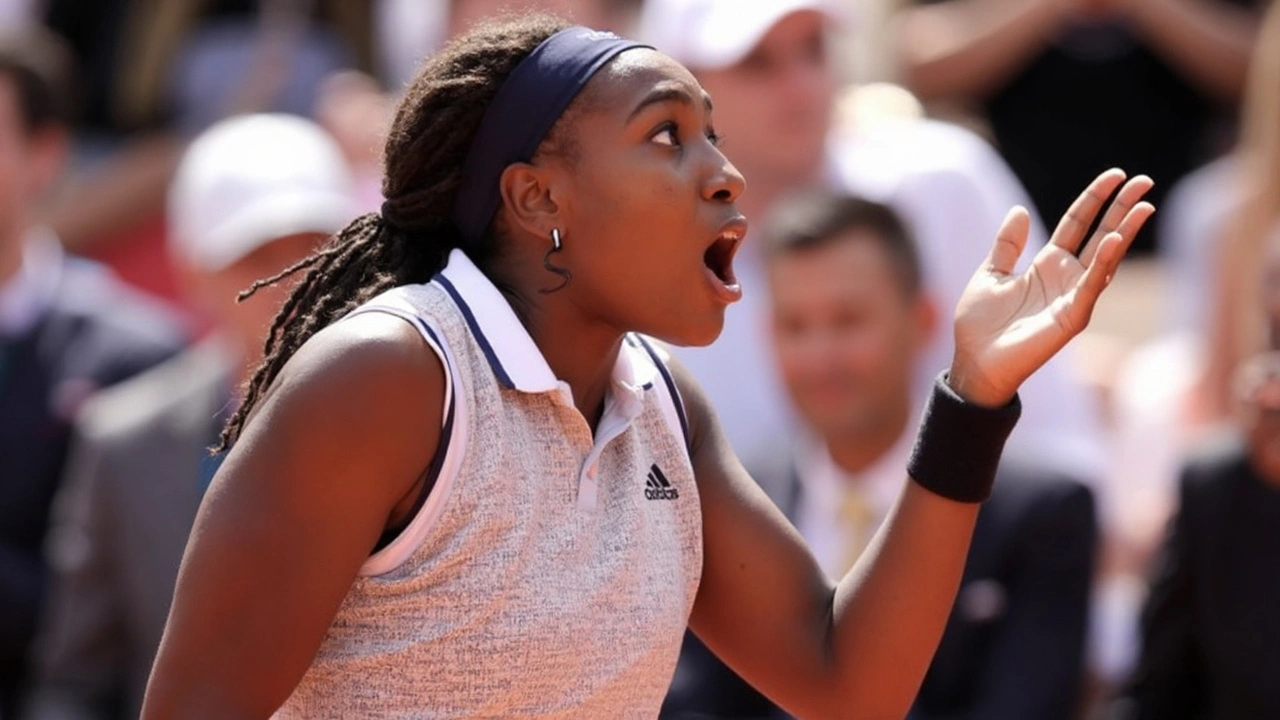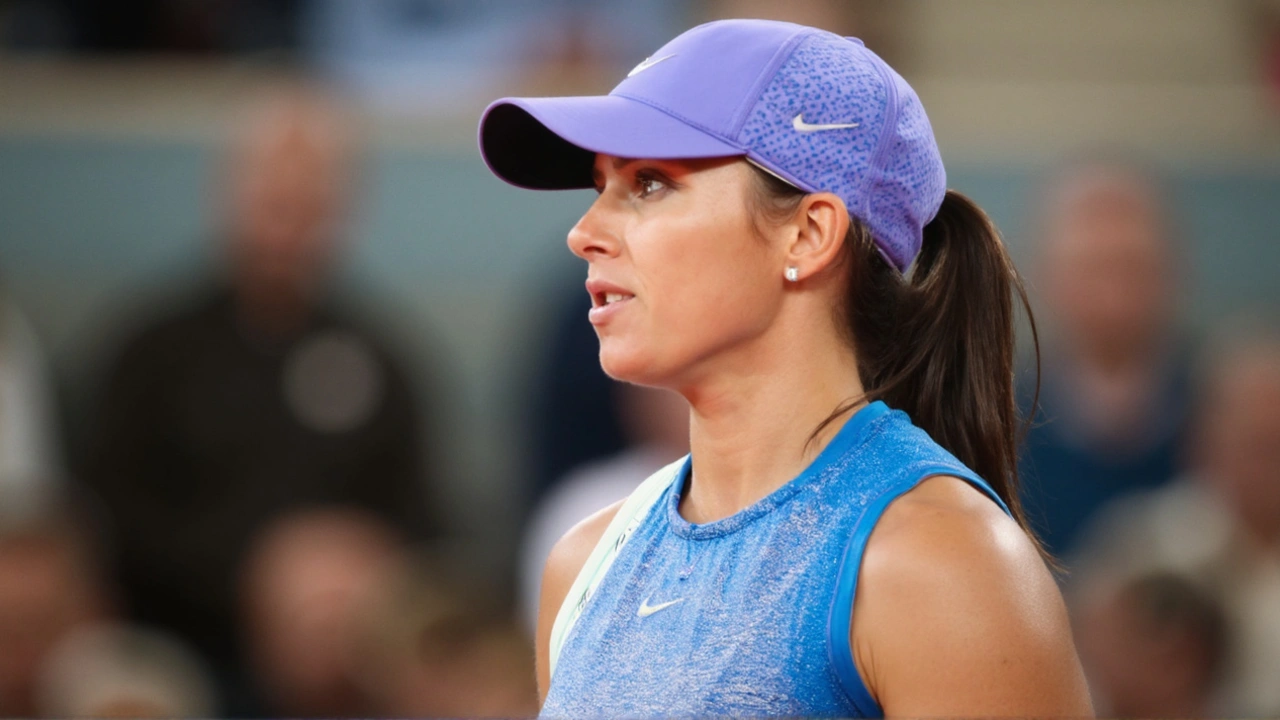Iga Swiatek Faces Unexpected Clay Court Setback
Iga Swiatek used to be the name that sent a chill down every opponent's spine as soon as the European clay season rolled around. For the last three years, she’s made clay look like a playground, racking up eight titles and often barely breaking a sweat. This spring was supposed to follow the same script: expectations were sky-high after she blitzed through the rankings in 2024 and sat atop the clay season power index, nearly 4,000 points ahead of anyone else.
But this time, the script got flipped. Swiatek entered Madrid with a massive lead, carrying a 9336.75 index—a number that made everyone else look like they were running a different race. Suddenly, matches started slipping away. Not only did she fail to defend her Madrid crown, but she also stumbled in both Rome and, more surprisingly, Roland Garros, the court where she'd built her queenly reputation. For the first time since 2019, Swiatek left the clay season without a trophy in hand.
The fallout? A huge 4,000-point drop in her ranking score and a slide all the way down to World No. 7. That’s a shock for someone who's almost felt invincible on red dirt. Yet in typical Swiatek fashion, she seemed cool as ever, brushing off the slide and telling reporters the points just weren’t that important to her. “Doesn’t really matter,” she said when asked about the technicalities behind her new world ranking, making it clear she’d rather focus on her game than do math with the ranking system.

Looking Past the Numbers
The timing of her dip couldn’t have been worse, coinciding perfectly with Aryna Sabalenka’s surge on the tour. Sabalenka, who’s spent years in Swiatek’s rearview mirror, made a move, but Swiatek doesn’t seem all that bothered by comparisons or the shifting tennis landscape. She’s known for staying in her lane, keeping her eyes on performance and improvement rather than getting fixated on rivals—or the numbers on the leaderboard.
Now, the scene shifts from red dirt to green. Grass courts have always been a bit of a puzzle for Swiatek. If you look at her Grand Slam resume, her least impressive results are almost always at Wimbledon. She doesn’t shy away from it—she admits it’s her trickiest surface. Instead of entering Queen’s Club Championships and running herself ragged after a tough clay campaign, she’s decided to pause, regroup, and laser-focus on Wimbledon preparation.
For fans, that might feel like hitting the brakes, but for Swiatek, it’s part of a bigger plan: rediscovering her edge, shaking off the disappointment, and proving to herself and everyone else that her tennis is about more than just numbers. Now, all eyes are on her next move as the grass season heats up and the rankings talk grows louder—but she’s making it clear the only score card she’s paying attention to is the one on the court.

16 Comments
Kara Withers June 27 2025
Swiatek’s slide in the ranking isn’t just a headline number; it reflects a 4,000‑point deficit that the WTA awards for missing titles on the clay swing. The points she lost in Madrid, Rome and Roland‑Garros are each worth roughly 2,000 to 1,000 points depending on the tournament tier. Because the ranking system is cumulative, dropping from No.1 to No.7 means she’s now behind competitors who consistently reach later rounds. This also hurts her seedings in upcoming draws, which could affect draw difficulty. In short, the math behind the rankings is straightforward, even if the headline sounds dramatic.
boy george June 28 2025
Confidence over points defines Swiatek’s mindset. She’s not chasing numbers, she’s chasing match wins. That attitude keeps her focused.
Cheryl Dixon June 28 2025
While confidence can be a virtue, pretending the ranking drop is irrelevant glosses over the brutal truth of sport. The clay circuit is unforgiving, and dismissing the points feels like a poetic shrug rather than a tactical adjustment. In the grand tapestry of tennis, every slip writes a new stanza, and Swiatek’s recent chapters demand more than a casual non‑chalance.
Ramesh Modi June 29 2025
Let us consider the philosophical weight of a champion who willingly sidesteps the very metrics that define her legacy! The drama of a number‑driven system is not merely statistical; it is the pulse of narrative, the echo of triumphs and defeats! When Swiatek declares that the points “don’t really matter,” she is, in effect, redefining the hierarchy of values that sport imposes upon us. Such a stance can inspire or alienate, depending on the lens through which we view competition!
Ghanshyam Shinde June 30 2025
Sure, shrugging off points sounds deep, but in simple terms it’s just a fancy way of saying “I lost some money and I don’t care.” The rankings will adjust anyway, and the drama is already over.
Charlotte Louise Brazier July 1 2025
Swiatek’s decision to regroup for grass shows a proactive approach; she isn’t merely reacting to a setback but strategically redirecting her energy toward a surface where she can still contend for majors. This kind of forward‑thinking preparation can pay dividends, especially at Wimbledon, where mental freshness often trumps raw statistics.
SAI JENA July 1 2025
Indeed, taking a deliberate pause before the grass swing demonstrates professional maturity. By focusing on specific training blocks, she can refine footwork and adapt her game plan to the faster courts. This measured approach aligns with best practices in athlete periodisation, ensuring peak performance when the stakes are highest.
Donny Evason July 3 2025
From a cultural perspective, Swiatek’s narrative reflects the broader evolution of tennis, where mental resilience is as celebrated as physical prowess. Her handling of the ranking dip adds a layer to the sport’s storytelling, offering fans a glimpse into how champions navigate adversity across different surfaces.
Hariom Kumar July 3 2025
Nice move! 😊
Phillip Cullinane July 5 2025
Analyzing Swiatek’s recent performance through a performance‑analytics lens reveals multiple layers of impact on her ranking trajectory. Firstly, the loss of a Premier Mandatory title in Madrid eliminates a 1,000‑point boost that normally underpins a top‑five standing. Secondly, her quarter‑final exit in Rome translates to a 360‑point deficit relative to a typical semifinal appearance. Thirdly, the early-round upset at Roland‑Garros not only strips away an additional 720 points but also erodes confidence metrics associated with Grand Slam resilience. Moreover, the cumulative effect of these point losses triggers a cascade in the WTA’s dynamic ranking algorithm, which recalibrates seedings based on a rolling 52‑week window. This recalibration can force a top‑seeded player into a tougher draw, increasing the probability of encountering higher‑ranked opponents in earlier rounds. From a sports‑science perspective, the transition from clay to grass imposes distinct biomechanical adjustments, requiring a shift from high‑topspin rallying to low‑bounce precision targeting. Swiatek’s expressed focus on grass preparation suggests a strategic periodisation plan, yet the physiological adaptation timeline often spans multiple weeks of surface‑specific conditioning. Additionally, the psychological component cannot be ignored; public statements downplaying ranking relevance may serve as a coping mechanism, but they also risk underestimating the motivational drive that points provide. In the context of her rivalry with Sabalenka, the points differential now narrows, potentially altering head‑to‑head dynamics in forthcoming events. Finally, media narratives surrounding the “ranking drop” create external pressure that can influence performance anxiety metrics, further complicating the athlete’s pathway back to the top. In sum, the technical, tactical, physiological, and psychological variables intertwine to shape Swiatek’s current standing and future prospects on the tour.
Janie Siernos July 5 2025
The discussion about points often overlooks the ethical dimension of sportsmanship; losing matches can teach humility and reinforce the principle that effort matters more than outcomes.
joy mukherjee July 6 2025
Swiatek choosing to focus on her game rather than the math shows a healthy mindset. It reminds us that athletes are humans, not just number generators. 😊
Rob Chapman July 7 2025
Swiatek’s approach highlights the importance of mental framing in elite sport
Delaney Lynch July 7 2025
While it’s true that mental framing is crucial, one could also argue that consistent results across surfaces are the ultimate test of a champion’s versatility; the grass season will reveal whether this mental shift translates into tangible performance gains.
Nicholas Mangraviti July 9 2025
Focus on the court beats focus on points.
Jared Greenwood July 9 2025
From a national perspective, it’s vital that top players prioritize performance metrics to maintain our country's reputation; ignoring the ranking system undermines the competitive edge we need on the global stage.